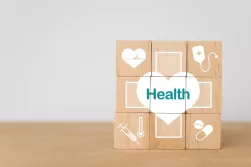I strongly believe that every medical center needs a dedicated medication safety leader. The American Society for Health-System Pharmacy (ASHP) published a position statement on the Role of the Medication Safety Leader that I highly encourage all pharmacy directors to read. Medication safety simply cannot be another hat one wears as a pharmacy manager or director who is also managing budgets, monitoring financial performance, implementing cost-saving measures, addressing regulatory concerns, maintaining a competent and engaged staff, and more! A medication safety leader sets the medication safety vision, identifies opportunities to improve the medication-use process, and leads efforts and initiatives to prevent medication errors. For those who have bought into this idea and secured the funding to hire a dedicated medication safety leader, wonderful and congratulations! Here are some tips on what to look for in your future medication safety leader along with how to assess for these traits during the interview. The same ASHP position statement referenced above lists 19 characteristics that medication safety leader should have which I agree with 100%. I am going to add (or highlight) five (5) more.
- Assertive, but not aggressive. “Appropriate assertiveness” is already listed as a desirable characteristic on the position statement (characteristic #15), but I want to call out the need for the appropriate assertiveness and why to avoid aggressiveness. Medication safety leaders are often put into the position of having to convince various levels of leadership of something- to heed the lessons of medication errors, to consider a new process, to implement safety technology, etc. Many of which are unpopular ideas from the start for a variety of reasons: cost, level of effort to implement, increased workload, or even normalcy bias (the concept that an outside error won’t happen here). Appropriate assertiveness refers to advocating for safety to the right stakeholders, at the right forum, and at right time. Being aggressive does not help to convince leadership. Instead, it turns them away. During an interview, ask candidates about how they manage conflict or how they respond to criticism and look for non-verbal cues such as eye-contact and tone to assess for assertiveness.
- Highly organized. At any given moment, medication safety leaders are juggling a multitude of projects and initiatives at various stages – some in flight, some they are still advocating or getting buy-in for, some nearing completion or in the monitoring phase. This is in addition to day-to-day medication error review, presentations, and meetings. It takes a highly organized individual to keep everything straight and moving forward. During the interview, ask candidates how they stay (or plan to stay) organized with multiple projects or ask them to walk you through how they managed a complex project.
- Flexible. In my nine years in medication safety, I have come to realize the need to pivot multiple times with medication safety projects. At times we need to pivot within the project itself i.e. we were headed north, but now realize we need to head northeast (metaphorically speaking). In addition, we often need to pivot our attention, efforts, and energy from one project to another because of organizational priorities or momentum (sometimes when a new error happens it increases interest and speeds up a safety project). During the interview, some of the same questions for assessing the ‘highly organized’ trait may be used to assess the candidate’s level of flexibility. You can also ask how they adjust to changes that they have no control over.
- Collaborative. Nothing in medication safety can be done in a silo. A medication safety leader cannot develop a safer workflow without engaging front line workers and operational leaders. In addition, more often than not, medication safety projects will be multidisciplinary in nature- involving any combination of physicians, nurses, respiratory therapy, central supply, bioengineering, pharmacy, healthcare risk, and others. During the interview, ask candidates to explain how they collaborated with others on a project.
- Curious. Being curious helps to do so many things- develop rapport, learn about a workflow or system, think outside the box, draw connections, and so much more. During the interview, ask candidates to tell you about a time where they had to complete a project but were not given all of the details. Look for how many questions they ask during the interview about the position and the organization as well as the quality of those questions. Routine questions asked by many candidates may not be reflective of natural curiosity, but thoughtful questions that perhaps reference something discussed earlier might point to a naturally curious individual!



